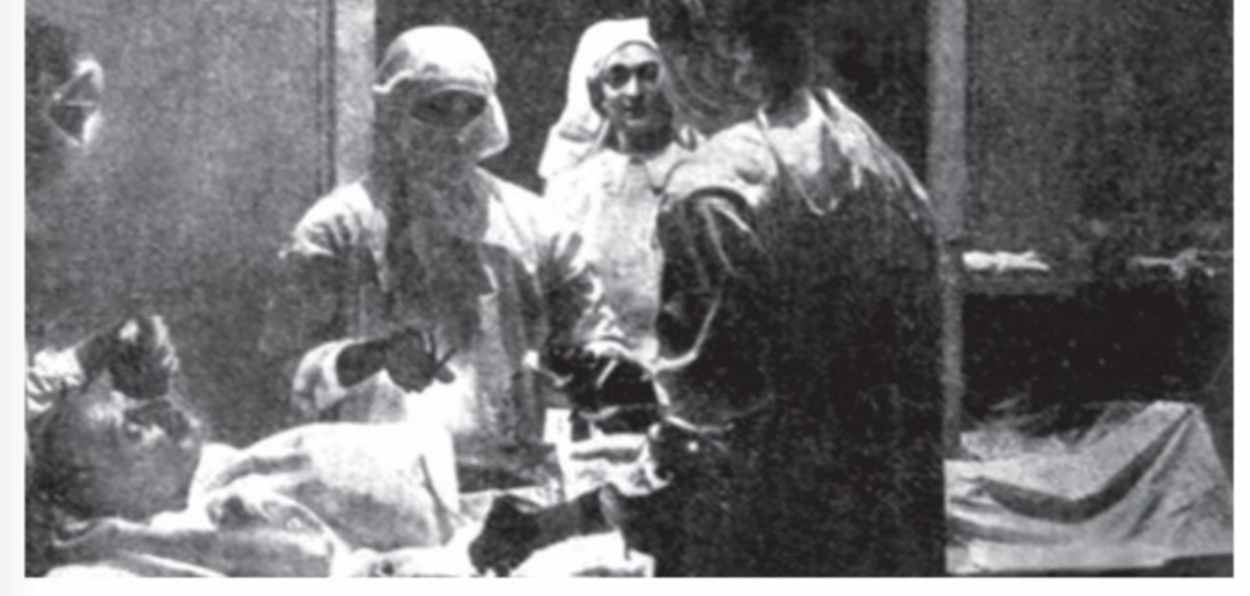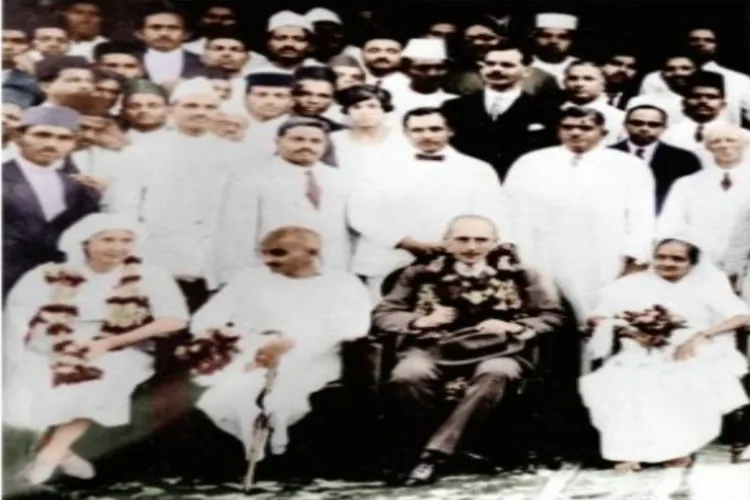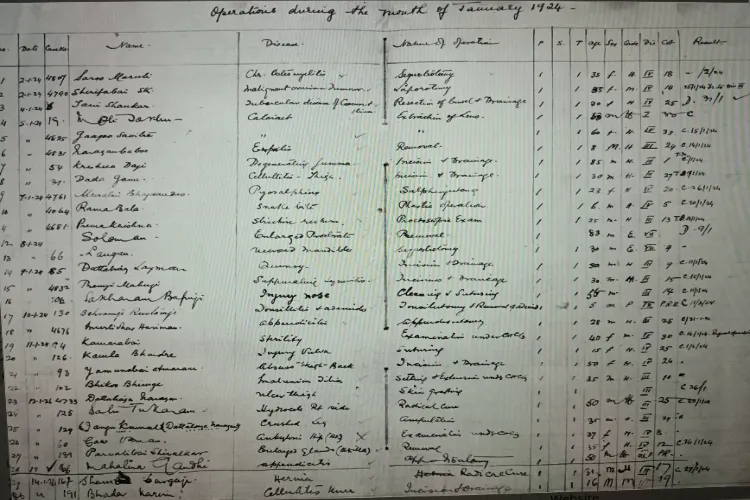
Saquib Salim
“Before Bapu (Mahatma Gandhi) could finish, the surgeon (Colonel Dr. Maddock) broke out impatiently, “Yes, yes, but I have not come here so early, as your doctor. I am the bearer of good news. The government has released you unconditionally.” He laid special emphasis on ‘unconditionally.’ “Now you are free to go wherever you like.’’
Bapu was silent for a moment, and then with just a smile, he said, “I thank you. But I do hope I can continue to stay here as your patient and guest for a few days more.” The surgeon laughed and said, ‘Most certainly, with great pleasure, but on one condition. You will continue to obey my orders as your doctor, exactly as you have been doing till now. You are no longer a prisoner, but you haven’t ceased to be my patient!”
Bapu also burst into loud laughter.
This conversation was reported by Mahadev Desai, secretary of Mahatma Gandhi. It is dated 5 February 1924 and Gandhi was in Sassoon Hospital, Pune, where he had been admitted on 12 January. Gandhi had been lodged in the Yerwada jail on 18 March 1922; he underwent the surgery by Dr. Maddock on 12 January 1924.
Alagan Annamalai, director of the National Gandhi Museum, writes, “Gandhi was admitted to the Sassoon Hospital on emergency medical care. Gandhi was then in Pune, serving his six-year sentence in a sedition case since 1922. However, two years later he was required to undergo an emergency appendectomy to remove an inflamed appendix and the surgery began on the night of January 12, 1924, as a thunderstorm raged on. The surgeon who operated on Gandhi was a British colonel, Maddock. While the surgery was in progress, the electric bulb went off. The appendectomy had then to be finished by the light of a hurricane lamp.”

Mahatama Gandhi and Kasturba Gandhi with Dr Col Maddock and other staff of the Hospital
No wonder, Indians started praying for him. The day of 18 January was declared as Gandhi Day. On this day, people prayed collectively for Gandhi’s well-being. According to a report submitted by the Intelligence agencies to the government, “Interest continued to center around Gandhi's illness and the demand for his immediate and unconditional release became more insistent and general. Gandhi-day on the 18th was observed throughout the Presidency as a special one by the offering of prayers for Gandhi's speedy recovery. If the number of meetings held and the intensive and sustained press campaign that was carried on can be counted as an indication of popular sentiment, there is little doubt that all sections of political opinion Are unanimous in their desire to secure the release of Gandhi. Five meetings were held in Bombay City alone on this subject, the meeting on Chowpatty Sands being attended by 5,000 people. Ahmedabad came next with a meeting of 2,000 persons: a meeting of Mohammedans being also held at the same place in the Juma Masjid.
"At Karachi, the attendance was only 600 but it had already had its meeting two days previously which was attended by 3,000 people. At both the Karachi meetings, the threat of resorting to Satyagraha was held out if Gandhi was not released, with Lala Lajpatrai giving the lead at the earlier meeting. Poona had its meeting on the 27th at which 5,000 people were present, prominent among them being Shaukat Ali, his mother Bi Aman, Dr. Kitchlow, and Dr. Mahmood, all of whom had arrived that morning on a visit to Gandhi.”

The hospital records showing Bapu's name as a patient
The British were witnessing the united strength of India. The hospital ward, where Gandhi was admitted, became a spectacle of unique Hindu-Muslim unity across the political spectrum. M. R Jayakar, Lala Lajpat Rai, and others who disagreed with him visited. Lala Lajpat Rai couldn’t control his tears and wept in front of Gandhi.
The reverence paid by Muslim leaders Shaukat Ali and Mohammad Ali was unmatched. Desai reports, “As he (Shaukat Ali) was leaving, he began to grope for Bapu’s feet: “Mahatmaji! You have grown so thin and weak that your feet cannot even be discerned !” And, covered, and reduced to skin and bone, as they were, it was difficult to find out the location of his feet. When he found them, he took off all the covering, bared Bapu’s feet, and, with eyes dripping with love and sympathy, imprinted a kiss on them.” He further reports, “Mohammad Ali also kissed Bapu’s feet, but with the covering kept intact.”
Under the great public opinion, the government ordered Gandhi’s release on 4 February but Gandhi wouldn’t leave the hospital. He wrote, “Col. Maddock and his staff have treated me with the utmost attention and kindness. I may not omit the nurses who have surrounded me with sisterly care. Though it is now open to me to leave this, hospital, knowing that I can get no better treatment anywhere else, with Col. Maddock’s kind permission, I have decided to remain under his care till the wound is healed and no further medical treatment is necessary."
ALSO READ: Why the British were scared of Maulana Ubaidullah Sindhi?
Gandhi wasn’t very happy with his release though. He wrote, “I am sorry that the Government has prematurely released me on account of my illness. Such a release can bring me no joy for I hold that the illness of a prisoner affords no ground for his release.”
